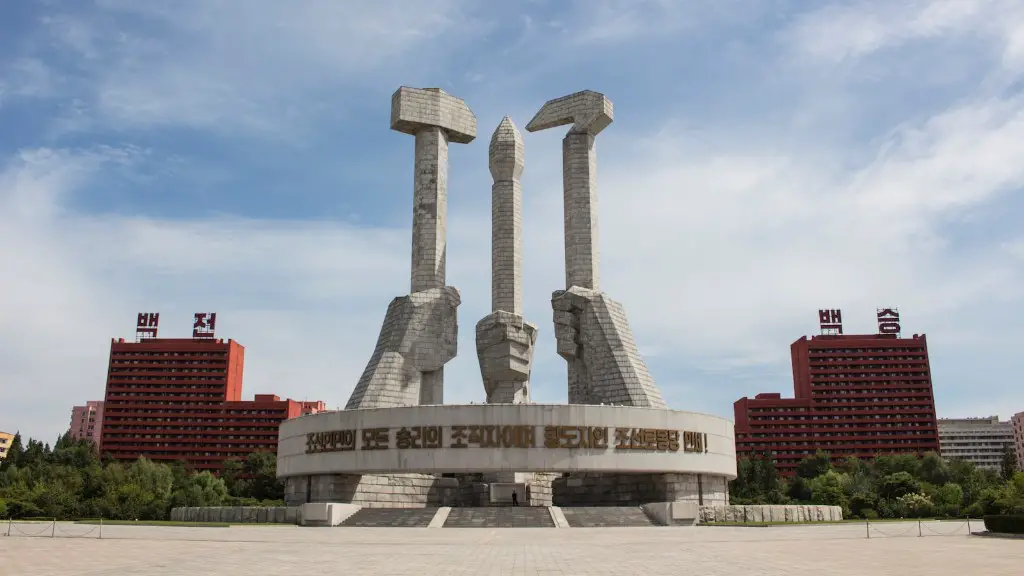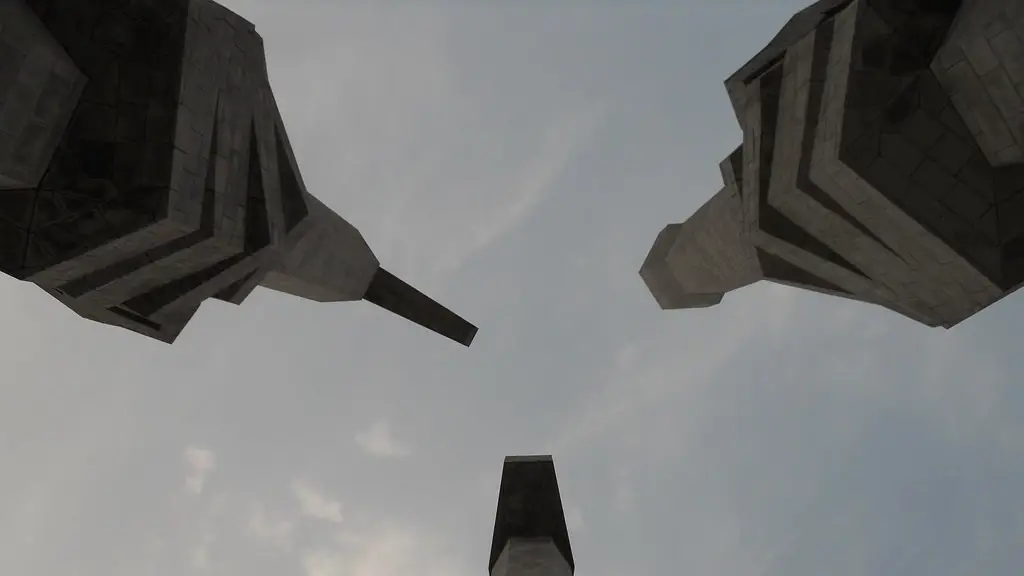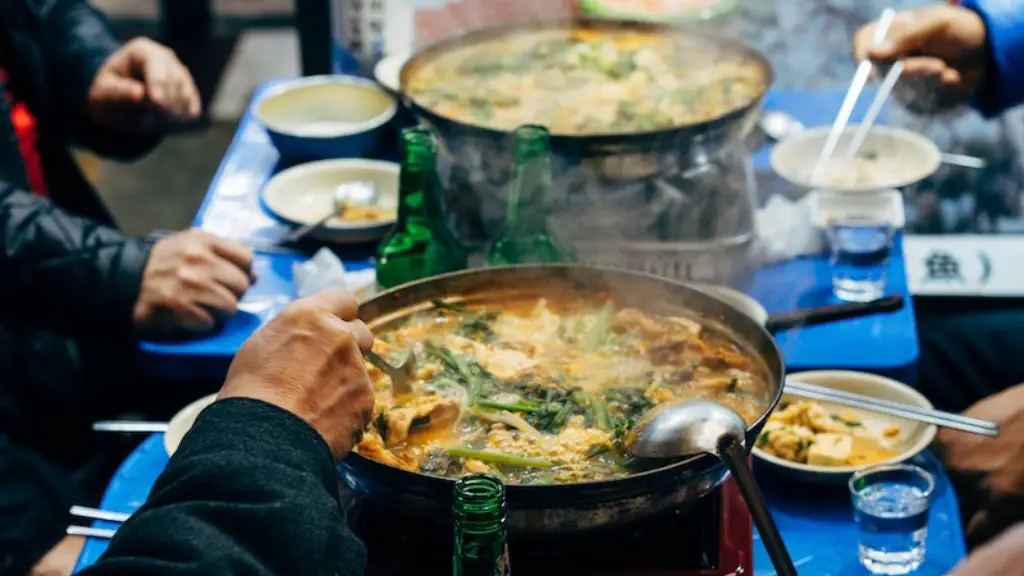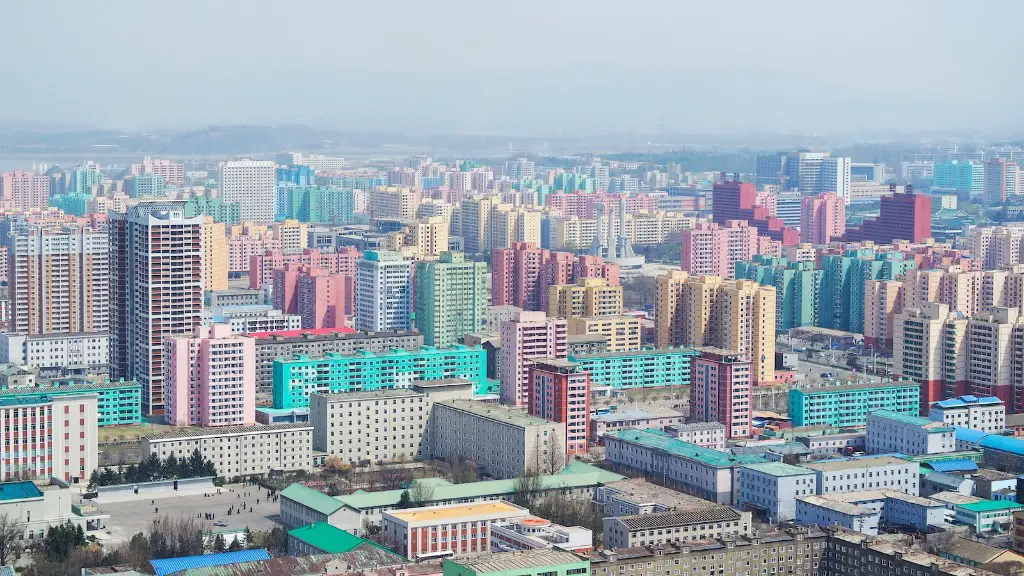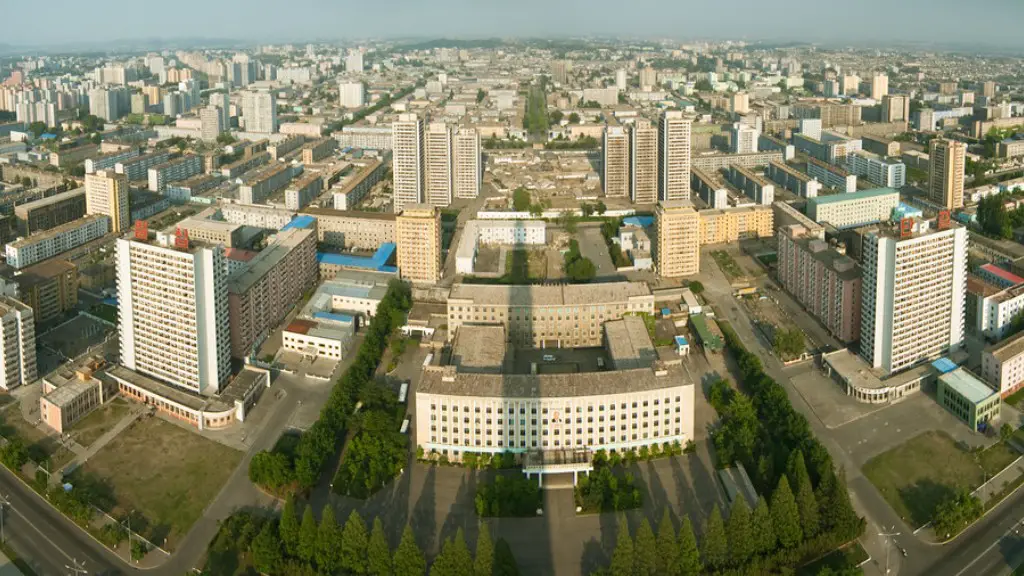If the country of North Korea makes the news, it is typically because of aggressive missile tests or the conduct of its authoritarian leader, Kim Jong Un. The economy of this isolated country is not often discussed, but for those who are curious how North Korea’s economy functions, it is complex and mysterious. North Korea, officially known as the Democratic People’s Republic of Korea, has no official foreign relations, so any insights into its economic policies come from external sources.
Though the exact numbers for North Korea are hard to ascertain, it is estimated the total worth of North Korea’s economy is between $10-30 billion. North Korea’s main trading partner is China, providing 90% of their nation’s trade according to research analyzed by the Washington based Brookings Institute. This trade consists of goods such as minerals, chemicals and metallurgic products. Beyond China, North Korea also has limited trading partnerships with countries like India, Thailand, and France.
North Korea is currently classified by the World Bank as one of the world’s least developed countries. GDP per capita is around $1,800, far below the major industrialized counties. As a result, poverty is rampant and most citizens struggle to provide basic goods and services for their families. To compound the economic challenges of North Korea, the nation’s government has artificially active the value of its own currency, creating an issue known as hyperinflation.
Ultimately, North Korea’s economy is controlled by the state. Government-operated enterprises own crucial industries including mining and construction, and are responsible for providing goods and services to the public. Comprehensive control is preserved by tightly regulating the flow of goods and labor in and out of the country. In the eyes of many, this perceived economic autonomy is what allows North Korea’s government to maintain its power within the region.
This control has allowed the North Korean government to allocate what little finances they have to sustain their military. According to data published by the International Institute for Strategic Studies, the North Korean militarized structure is the second-largest in the world by weighted manpower. This is despite North Korea’s size, poverty, and complete lack of resources. Experts then point to their government’s ability to control the economy as the engine driving this military growth.
Influence of Corruption
Corruption is known to be endemic in North Korea and shapes how the economy is controlled. Oftentimes, it is hypothesized that the North Korean elite use personnel and asset transfers to enrich themselves. Therefore, the policies the state employs often lack transparency, meaning outsiders struggle to understand the exact details of a given policy.
International sanctions are also an important factor to consider when looking at economic stability in North Korea. In 2017, the United Nations adopted a series of economic restrictions in an attempt to dampen activity in certain sectors. Most notably, the UN and the US have limited the sale of oil, luxury items and banned certain kinds of coal exports. While these sanctions have restrained the economic growth of North Korea, it has not been as detrimental as initially anticipated.
Involvement of China and South Korea
Due to North Korea’s relative isolation from the rest of the world, the main source of foreign investment comes from China, its closest ally. This investment primarily serves the purpose of maintaining and increasing border ties, as China strives to protect itself from potential political and military turmoil. South Korea has also taken an interest in reinforcing its ally, launching several joint projects focusing on the development of transport networks and energy infrastructure as part of the Pan-Korean Project.
The influence of foreign investment and the cohesion of South Korea and North Korea has promoted a paradigm shift, raising hopes of economic integration between the two countries. This integration would bring significant economic benefits to North Korea, allowing it to access new markets and better capitalise on its labor force.
Economic Challenges
The lack of economic freedom and continual state control has exacerbated the struggles of North Korea’s citizenry. Shortages of food and medical care, a lack of job opportunities, and limited access to technology are the primary issues plaguing the average North Korean. The state’s lack of oversight over these sectors has led to danger, creating an environment where negligence and mistreatment are common occurrences.
While North Korea has, in theory, embraced liberal economic methods, the nation currently remains one of the least economically developed in the world. It is clear there have been some small improvements in recent times, though it is hard to quantify the extent of these advances. Ultimately, issues such as international sanctions and the nation’s isolated political posture will remain key obstacles that stunt North Korea’s economic progress.
Effect of Sanctions on International Trade
International and UN sanctions have hindered North Korea’s ability to do business with specific countries. For example, the US and UN have imposed an export ban on North Korean coal, iron ore, and seafood, with the purpose of hitting their economy and creating an incentive for North Korea to negotiate for denuclearization. These sanctions, however, have not targeted the North Korean people, and lack of international trade means North Korea’s citizens largely remain isolated from the outside world.
Due to the North Korean government’s tight control over trade, ordinary citizens are unable to participate in international business. This lack of access to global resources has only further destabilized their economy and limited the prospects of their citizens to improve their well-being.
Attracting Foreign Investment
Attracting foreign investment is seen by many as the only efficient way to financially stabilize North Korea. The government has made a number of efforts to create an environment that can facilitate foreign investment. The Rason Special Economic Zone in the northernmost corner of North Korea is the most prominent of these initiatives, appealing to foreign investors due to its low taxes and beneficial labor regulations.
In recent times, countries like China, Switzerland, and the Netherlands have been exploring potential investments inside North Korea as a way to start a relationship with its government. These efforts, however, have been largely unsuccessful as foreign investors remain cautious about the stability of the North Korean economy.
Impact of Covid-19 on North Korea Economy
The Covid-19 pandemic has had a sizable effect on North Korea’s economy, leading to both short and long-term economic struggles. North Korea implemented a range of social distancing measures early in the pandemic, including banning international tourism to their country. This has resulted in a massive decrease in foreign income, a significant contributor to the North Korean economy.
Further, the pandemic has made it difficult for the North Korean government to impose economic policies due to a lack of manpower and resources. This has caused a significant decrease in economic growth and made it inconsistent. In addition, it has posed a challenge to those attempting to sell domestic food and goods, as borders are closed, leading to difficulties in regular trade.
Economic Outlook
The outlook for North Korea’s economy is bleak. The country is consistently struggling with a multitude of economic issues, including a lack of options for foreign investment, an undersized industrial base, and a shortage of resources to make use of.
Despite the difficulties facing North Korea’s economy, its government has continued to pursue regional autonomy through technological advancements and increased sanctions enforcement. This ever-manufactured ‘peaceful’ relationship with the US and other countries has, in turn, allowed the nation’s economy to remain somewhat stable for now, though experts agree that the future of North Korea’s economy will remain uncertain.
